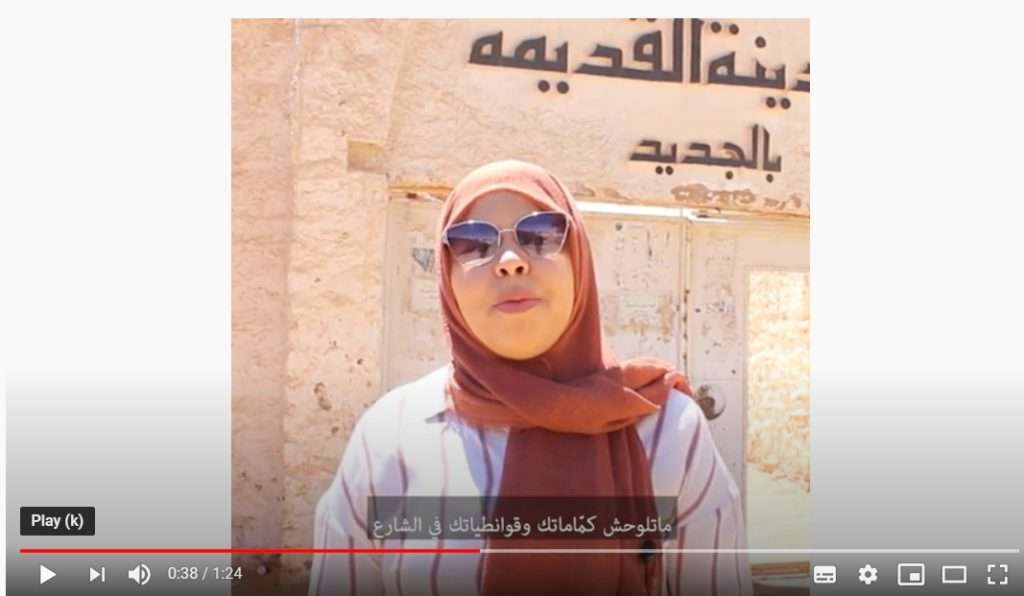PCi regularly brings together leadership figures from civil society, local government, media, academia and traditional institutions from all over Libya (representing more than 20 different communities in total). The peacebuilding network helps to build trusting relations among themselves, to share their perceptions on events affecting conflict and peace in Libya, to develop common understandings of the context, and to identify opportunities to collaborate on practical peacebuilding action.
Participants in these meetings have worked to reflect together on their experience of carrying out peacebuilding in Libya in order to capture important learning for other practitioners; they have put together joint analyses of what has been driving conflict in Libya in order to inform better-designed interventions; and they have worked together to design activities that can have an impact on peace in ways that they would not be able to do if they were only working individually.
Impact
Since 2018, participants in PCi-led networking meetings formed their own organisation, the Peacemakers’ Network – Libya. Registered with the authorities in Libya, the organisation gives Libyans from both sides of the conflict divide a vehicle to work together in an institutional way, to seek funding autonomously, and to amplify the voice of its diverse membership. https://pnlibya.com/
Peacemakers’ Network – Libya launches campaign on COVID-19: ‘Your health is Libya’s health’
Members of the Peacemakers’ Network – Libya conducted a joint campaign that sought to underline the importance of solidarity, respect and cooperation among Libyans as an essential component to combating the COVID-19 epidemic. Network members from 12 different communities contributed to preparing a video clip that was posted across social networks which highlighted the campaign’s key messages. In addition, members set up billboards and posters with useful public health information in their own communities including the languages of Libya’s Amazigh, Tuareg and Tebu minorities. Network members also appeared on radio programmes together with health experts to talk about both the medical and the social aspects of working to confront the epidemic.
Network support to practical peacebuilding
Network members have used their joint analysis to inform a strategic approach to helping other peacebuilders inside Libya contribute to peace between communities. Network members agree the criteria for supporting local peacebuilding actions, they jointly select initiatives that they believe should be supported, and they then provide their personal support for this work and monitor its implementation. This approach to supporting local peacebuilders means that effective individuals or small organisations who might ordinarily struggle to find material support for their work can also contribute to peacebuilding, enjoy the support of experienced Libyan peacebuilders, and have the opportunity to learn from their practice owing to the monitoring and learning work carried out by network members.
Bringing youth from Misurata and Tawergha together to build peace

Network members supported the Libyan Organization of Sustainable Development, a local civil society organisation, in developing peacebuilding skills among 24 young people from Misurata and Tawergha as a first step to establishing dialogue. For more on the story, click here.
Enabling cooperation among network members
The diversity of network members – people from different backgrounds and with different expertise – allows participants in network meetings to draw on a range of strengths and experiences. Network members can therefore bring their expertise to new communities (to which they might not previously have had access), to combine modern methods with traditional approaches, or to bring new insights or perspectives to deep-rooted problems.

Bringing youth from communities of Awal and Ghadames together to build safer communities
Network members from Ghadames, Awal and Tripoli, Beni Walid and Al Huamed in the Nafusa Mountains brought together 14 young people from Ghadames and Awal to address the history of conflict between these communities. Network members collaborating on this initiative included traditional leaders able to bring stature and gravitas to the process, civil society representatives able to introduce modern approaches to training and project management, as well as local representatives able to identify appropriate participants and build their trust. For more on the story, click here.

